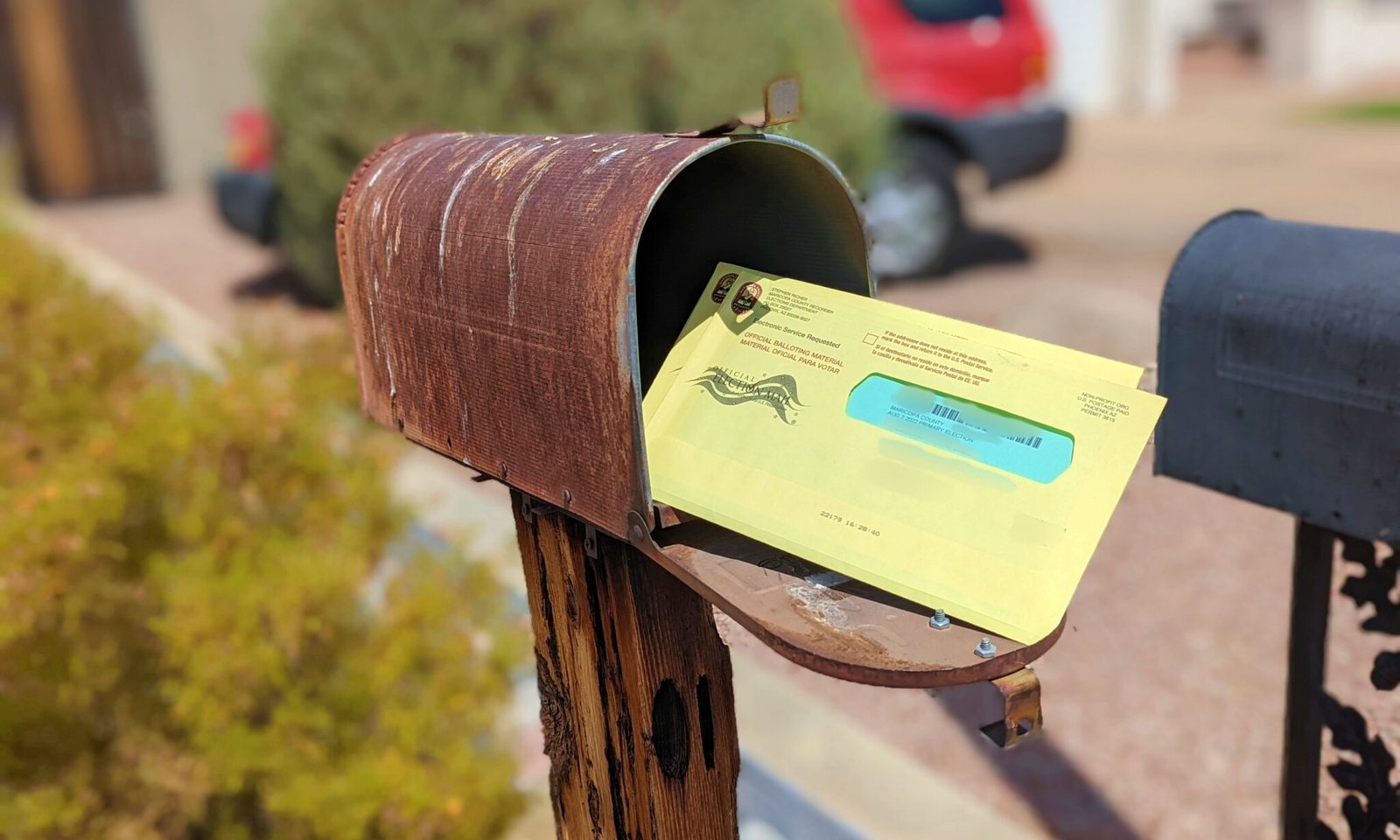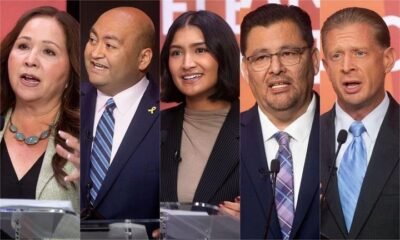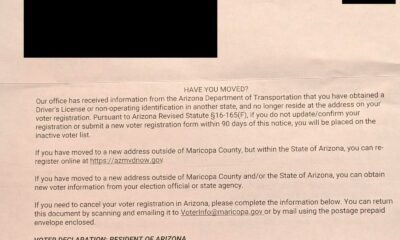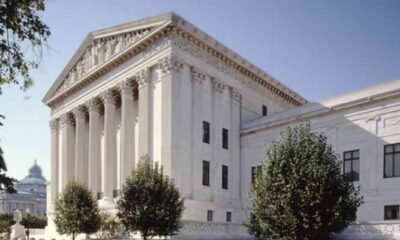2024 election
AZ Supreme Court Upholds Rights of 97,000 Improperly Registered Voters

The Arizona Supreme Court has determined that approximately 97,000 voters, who are incorrectly registered due to a flaw in the state’s driver’s license database, will not face restrictions on their voting eligibility in the upcoming November elections. The court’s ruling highlights the lack of legal authority for county recorders to alter these individuals’ registration statuses.
This issue arises from the Motor Vehicle Division’s handling of driver’s license information, specifically affecting individuals who received their Arizona driver’s licenses before October 1996 and later obtained a duplicate before registering to vote after 2004. The error in the voter registration system has raised concerns regarding the citizenship validation of these voters.
Arizona law mandates that every voter prove their citizenship at the time of registration. However, a ruling by the U.S. Supreme Court in 2013 prohibits the state from disenfranchising voters who claim citizenship without proof. This has led to the creation of a category of voters, known as “federal only,” who can vote solely in federal elections.
Maricopa County Recorder Stephen Richer recently brought this issue to light, requesting the Supreme Court to restrict these voters to federal races unless they can provide proof of citizenship. Richer expressed concerns over the integrity of the voter roll, emphasizing that these voters, who have participated in elections for decades, are not suspected of being noncitizens.
Secretary of State Adrian Fontes, a Democrat, countered Richer’s position, arguing that most of the affected voters are Republicans aged between 45 and 60. He maintained that there is no legal process to change the voting status of such a large group just weeks before the November 5 election, a view echoed by the Arizona Republican Party and various voting rights advocates.
The Supreme Court sided with Fontes, deciding against any changes to the voters’ registration status at this time. Chief Justice Ann Scott Timmer stated in the court’s order, “We are unwilling on these facts to disenfranchise voters en masse from participating in state contests,” emphasizing the principles of due process.
While the court declined to implement broad registration changes, it acknowledged that individual challenges to a voter’s registration could still proceed, which could potentially limit thousands from participating in state legislative elections.
Fontes heralded the ruling as a triumph for voting rights in Arizona. He remarked, “Today marks a significant victory for those whose fundamental right to vote was under scrutiny,” appreciating the court’s timely and fair resolution that enables voters to have a full ballot in local and state elections.
















